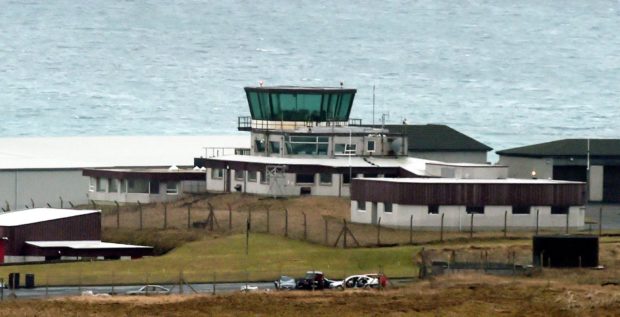Union chiefs have reacted angrily at the findings of a report into the impact of centralising air traffic control across the Highlands and Islands.
Prospect negotiations officer David Avery said the controversial remote towers project must now be paused after the damning verdict of the independent Islands Impact Assessment commissioned by Highlands and Islands Airports Ltd (Hial).
Mr Avery said: “The long-overdue Island Impact Assessment has now been published and shows what staff have been warning since the start of this project – that significant and unmitigable damage will be inflicted on island communities.
“The report is absolutely damning in its assessment of the damage this project will cause.
“Centralisation remains the most expensive and most economically damaging option and yet Hial are determined to continue with it.
“The proposal of yet another independent study on generating further economic activity falls far short of what is required here.
“Hial should immediately pause this project and commission a genuinely independent report considering the feasibility of an alternative localised model, if they refuse to do so then the Scottish Government must step in.
“This is a major test of the credibility of the Islands Act which was intended to stop projects like this and ensure organisations considered less damaging alternatives.
“If organisations are allowed to simply ignore these Assessments then the whole Act will be rendered little more than a PR exercise.”
On staffing he added: “The report also confirms Prospect’s own survey which found that staff in island communities will not relocate to Inverness.
“Hial need to explain how they intend to live up to their promise of no compulsory redundancies as all evidence suggests that widespread redundancies now seem inevitable.”
The union is threatening strike action over the proposal and Mr Avery said: “Hial’s claim that local implementation is not viable or that this report endorses their position is simply not true. This report states Hial’s position, it very clearly does not endorse it. Any attempt to claim the contrary is just more desperate spin.
“Local implementation of air traffic services including surveillance is how air traffic is implemented at almost every airport across the UK including at Hial’s own Inverness airport. It is a viable, workable and resilient alternative but Hial refuse to consider it.”
The report explores the potential impacts on local communities, both positive and negative, resulting from centralising air traffic control.
The strategy will introduce remote integrated air traffic control services for the five airports – Inverness, Dundee, Stornoway, Kirkwall and Sumburgh. This will be delivered via a Combined Surveillance Centre (CSC) located in Inverness.
Additionally, Benbecula and Wick John O’Groats airports will change the way air traffic management is delivered by extending their current AFIS (Aerodrome Flight Information Service) operations.
Hial said the report, by Reference Economic Consultants, makes clear that the status quo is not sustainable.
They state the report clearly notes why local surveillance was not viable and was discounted.
Hial chairwoman Lorna Jack said: “We welcome the report and commend the author on a thorough and challenging examination of the issues.
“The commissioning of the report demonstrates our commitment to listen and do everything we possibly can to mitigate any impacts. We want to work with colleagues and communities to find practical solutions.
“We appreciate that a programme of this magnitude and complexity will bring significant change for people in our communities, including our highly-valued air traffic control colleagues.
“However, standing still is not an option – we must modernise. ATMS is the only option that provides the necessary levels of resilience required to ensure long-term sustainable air traffic service provision for the communities we serve.”
Hial managing director Inglis Lyon said: “We have always known there would be impacts by undertaking such a significant and complex change management programme.
“To date, there have been no alternative proposals that provide a solution that fully addresses all of the challenges HIAL currently faces.”
Hial has written to all relevant local authorities to request meetings and has offered to work together with stakeholders to identify where it can contribute further to local economies.
Mr Lyon said: “We hope that everyone with a vested interest in the long-term future of air traffic services in the Highlands and Islands will work us to deliver viable solutions that will maintain lifeline services and essential connectivity for generations to come.”
